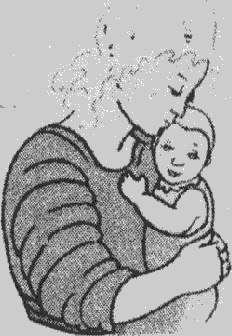题目内容
任务阅读 (10分)阅读下列短文,根据短文内容填写表格 (每空限填一词)。
How do you feel when you have to make a speech(演讲) in front of class? What about when you go to a birthday party? Do you get really shy?
Shyness means feeling nervous or frightened when you’re around other people. Experts (专家) have found that more than 80 percent of middle school students feel afraid to be the centre of attention. Some kids are born shy. Some become shy later because of their life experiences.
It’s OK if it takes you a while to feel yourself again when you go to a new place or meet new people. In fact, everybody gets a little shy sometimes. It’s just a case of how much.
Most people have red faces and talk in broken sentences when they get shy. But some become so shy that they won’t go to a restaurant because they are too nervous to order and pay the bill (账单). Some are afraid of meeting new people, so they seldom go outside. This kind of shyness can be bad for a person.
If shyness doesn’t stop you from doing something you want to do, being shy isn’t a very big problem. Some experts say shy people are quieter and cleverer because they think more and talk less. Shy people are also good at working with others because they think more for other people. Some great people in history were shy, too.
You see, being shy isn’t all bad. But remember not to let good chances pass by just because of it! If you have to sing a song at a birthday party or practise your spoken English in front of others, just do it! There’s nothing to be afraid of.
Shyness
|
Meaning |
●To feel 1. ▲ or frightened |
|
|
Causes |
●To be the2. ▲ of attention ●To be born shy ●To have3. ▲ experiences |
|
|
Effects |
4. ▲ effects |
●To have red 5. ▲ ●To talk in 6. ▲ sentences ●To be7. ▲ of meeting new people |
|
Good effects |
●To be quieter and 8. ▲ ●To be good at 9. ▲ with others |
|
|
Advice |
●To take hold of (抓住) good 10. ▲ |
1.nervous
2. center/centre
3.life
4.Bad
5. faces
6. broken
7.afraid
8.cleverer
9.working/cooperating
10.chances
【解析】略

 小学课时作业全通练案系列答案
小学课时作业全通练案系列答案 金版课堂课时训练系列答案
金版课堂课时训练系列答案 单元全能练考卷系列答案
单元全能练考卷系列答案 新黄冈兵法密卷系列答案
新黄冈兵法密卷系列答案Cellphones help us easily find people anywhere at any time. However, using cellphones too often may cause cancer. It's reported that people who used a cellphone for 10 years or more were more likely to get brain cancer.
 The suggestions below may help you reduce the risk (风险) of cancer:
The suggestions below may help you reduce the risk (风险) of cancer:
◆ When using your cellphone, try to keep it away from your body as much as possible. Don't put it under your pillow (枕头) or on a bedside table when you go to sleep.
◆ When you're on the cellphone, use the speaker. In this way, you have just 1/100th of the c![]() ontact (接触) with radiation you have when you hold it to your ear. An earphone is also a good idea.
ontact (接触) with radiation you have when you hold it to your ear. An earphone is also a good idea.
◆ Try to keep your conversations short. If you need to talk longer, use an ordinary phone instead.
◆ Change ears when you're using your cellphone. Before putting it to your ear, wait until the person you are calling picks up the phone.
◆ Your phone gives out radiation when you talk or text (发短信), but not when you're listening or getting messages. Listening more and talking less can lower the risk of cancer.
◆ Do not use your cellphone when the signal (信号) is weak or when moving at a high speed, for example in a car or t![]() rain. At high speeds your phone is trying to pick up signals, and this increases the radiation it gives out.
rain. At high speeds your phone is trying to pick up signals, and this increases the radiation it gives out.
任务型阅读:根据短文内容,填写下列表格。(10分)
| Healthy tips on cellphone use |
| ☆ Try to 8 l your cellphone away from your body, both when using it and sleeping. ☆ Using the speaker or an 82 is a good way to reduce the radiation. ☆ Avoid using a cellphone to make 83 conversations. ☆ Don’t press the cellphone to your ear until the person you are calling 84 the phone. ☆ Listening more and talking 85 can lower the risk of cancer. ☆ Don’t use your cellphone when the signal is 86 or when moving at a high speed. |

